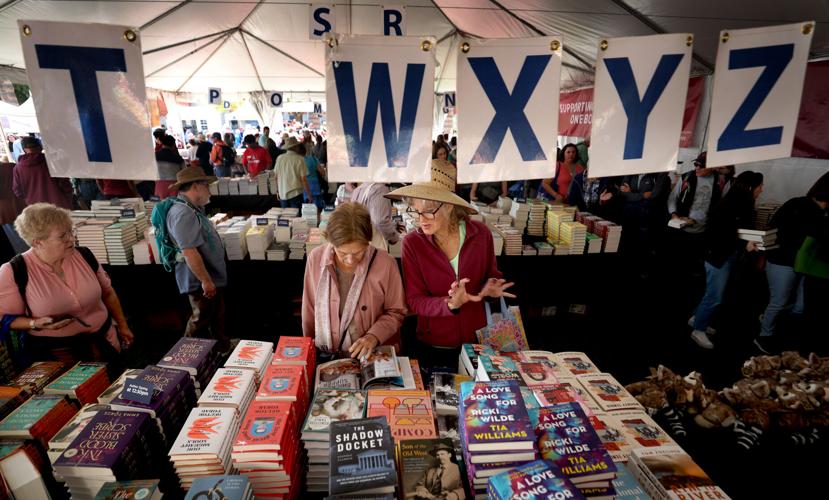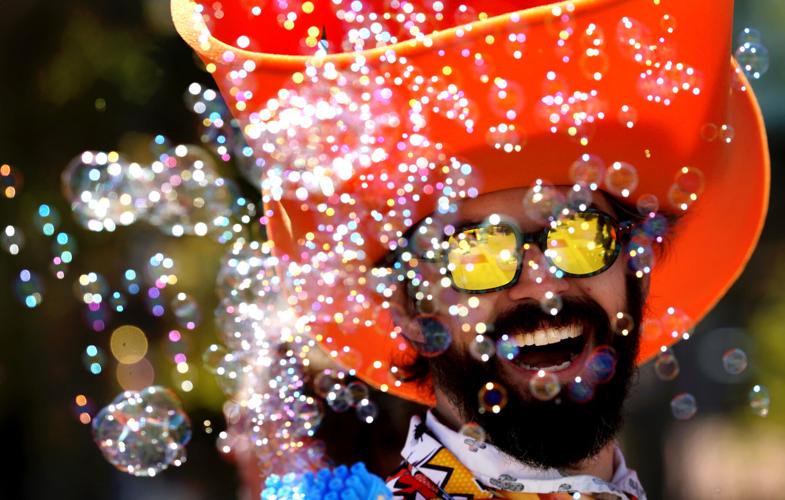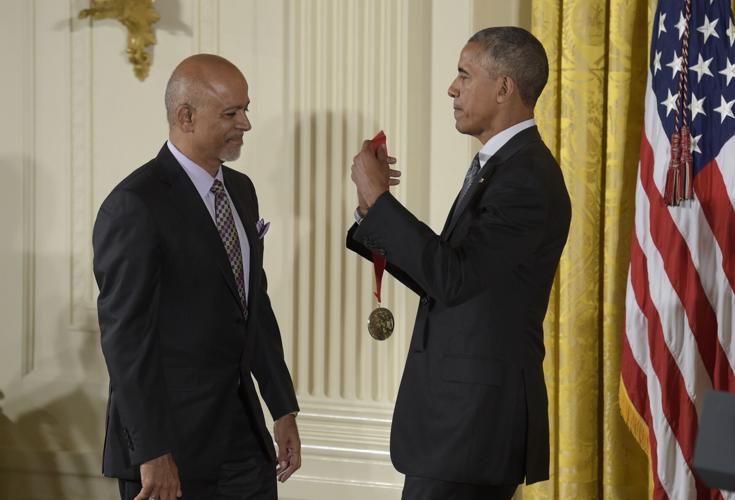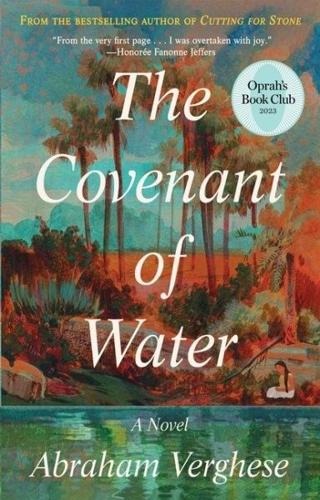“The greatest threat to our national security is disinformation from within our own country.”
That warning was sounded Saturday at the Tucson Festival of Books by legal scholar and analyst Barbara McQuade, whose background includes national security prosecutions.
Viral falsehoods pushed by profit-seekers and propagandists hit a populace so polarized that not only are people susceptible to the lies, “many are just going along with the con” because it advances their political agendas, McQuade told a packed audience at the University of Arizona.
“I don’t think we can choose tribe over truth and remain a democracy,” said McQuade, a University of Michigan law professor, former U.S. attorney, #SistersInLaw podcaster on Apple, and NBC and MSNBC analyst whose current book is titled “Attack from Within: How Disinformation is Sabotaging America.”
The festival, which continues Sunday at the UA, is the third-largest book festival in the U.S., featuring hundreds of authors and expected to attract more than 120,000 visitors over the weekend. In its 15 years, it has raised $2.2 million for literacy causes in Southern Arizona.
McQuade and two fellow authors raised alarms on a panel called Dangerous Information, one of the festival events where early-access tickets were most in demand and went the fastest.
“It’s very easy to game the system,” said Jeff Horwitz, a technology reporter for The Wall Street Journal and author of the book “Broken Code: Inside Facebook and the Fight to Expose Its Harmful Secrets.”
His investigative reporting on Facebook/Meta through whistleblowers and internal documents showed how the platform “played a significant role in pushing anti-vaxx information,” among other examples he cited. Asked whether Facebook helped get Donald Trump elected, Horwitz answered, “Yes, but not via the Russians. Candidly, Macedonian teenagers put the Russians to shame” in showing how “a small band hammers on the platform’s weaknesses to get massive distribution” of disinformation.
The algorithms and business models reward manipulation by boosting the influence of Facebook/Meta users who take such steps as sending out more than 100 friend requests per day or leaving 200 comments per hour, he said.
“And 2024 will be very much the same,” Horwitz said. He pointed out that if you start now, reposting viral cat videos over and over in order to amass a following, then in October, “start posting crazy crap to your audience of over 1 million,” you, too, can stir up mischief before the November election.
“There is a bias toward disinformation” anyway, he added, saying that if he told you what he really did this morning it would be boring compared to making up a story. “Things that are not true are more interesting.” A common saying inside Facebook, he said, is that “Your friends are often boring,” which is why the platform boosts the items it does versus what your friends are posting.
McQuade said disinformation is “damaging democracy, public safety and the rule of law,” and that Jan. 6 shows why that is so dire. When people are constantly told as a blanket statement that all the institutions of government are a disgrace, from the courts to the FBI to the Justice Department, “It becomes so reckless, it just doesn’t become a license ... but a sense of duty” for some to take up vigilante violence, she said. “They feel the need to take the law in their own hands, and it leaves us all in a dangerous, vulnerable position.”
Rounding out the panel, New York Times tech reporter Kashmir Hill described how one company, Clearview AI, has scraped 40 billion photos from the internet and “we’re all in the Clearview database.”
Hill’s book is “Your Face Belongs to Us: A Secretive Startup’s Quest to End Privacy As We Know It."
The facial recognition technology “can be so useful for crime solving, but can also be used in chilling ways, including punishing critics and dissenters,” Hill said.
The points were amplified at another panel discussion Saturday at the festival, called Dateline Washington.
Former Washington Post, Boston Globe and Miami Herald editor Martin Baron — famed in part for being portrayed by actor Liev Schreiber in the Oscar-winning movie “Spotlight” — said 25-30% of the American electorate at any time believes conspiracy theories to begin with. “You got a conspiracy theory? Guarantee you can find it online,” he said, adding, “Polarization is a business model for politics today.”
“But the future of the country is decided in increments of about 5%” of the electorate, and reaching that many people through factual, truthful reporting of verified and documented evidence is achievable, added Baron, whose current book is “Collision of Power: Trump, Bezos, and The Washington Post.”
Baron wasn’t alone in offering glimmers of hope against deliberate disinformation, or as McQuade put it, that there “may be a way out.”
McQuade said some legislative fixes are required — not to censor but to set “certain rules or at least disclosure about algorithms” and “non-content-based things on social media.” Also, despite the limitations imposed by the high court’s Citizens United ruling, she favors “campaign finance laws requiring more disclosure.”
She also urged that we “improve our own media literacy,” by checking that a source is credible and looking for a second source “before you get excited and share on social media.”
Hill noted that at this point, we can’t really avoid having our face in a database that could be misused unless we “just don’t step outside anymore.”
“But do not post photos of your kids to the public internet,” she said.
She pointed to an Illinois law, the Biometric Information Privacy Act, that could be a model for laws and regulations. It calls for individuals’ explicit consent or a company faces financial liability, Hill said.
Horwitz said the lessons from Facebook/Meta apply to other platforms, and “you can just build a system that’s a lot less volatile,” by putting a cap, for instance, on the number of friends one user can have or the number of comments permitted per hour, to crack down on spam and fraud.
“The story ends with either some version of regulation, or a product becoming too crappy and spam-laden” to keep enough legitimate users, he said.
‘This is what books do’
Another of the festival’s hottest tickets, based on early-access demand, featured physician, Stanford medical school professor and 2016 National Humanities Medal recipient Abraham Verghese.

His latest No. 1 best-selling novel, “The Covenant of Water,” has been praised by Oprah Winfrey as “One of the best books I’ve read in my entire life. It’s epic. It’s transportive. It was unputdownable.”
It’s no wonder Verghese was the keynote speaker Friday night for the authors’ dinner at what he called “this magical festival.”

Author, physician and professor Abraham Verghese (shown here receiving a National Humanities Medal from President Barack Obama in 2016) was the keynote speaker at the Tucson Festival of Books' authors dinner Friday, March 8, at the University of Arizona. Verghese also spoke Saturday to a festival audience about his latest best-selling book, "Covenant of Water."
In what could be heard as an eloquent balm against the current concerns about manipulation of words on social media — for those who would go on to hear the Dangerous Information panel the next day — he spoke reverently of the timeless power of writing to change the world for the better.
“’Uncle Tom’s Cabin’ probably ended slavery in this country,” Verghese said, wonder and admiration in his voice.
“Books matter. Fiction is the great lie that tells the truth about how the world lives.”
He told of being an avid and precocious reader despite an “undistinguished school career” as a child, and marveled at “the way a good novel can stop time.”
And not only fiction. When he came across scientific words written by Canadian physician Sir William Osler (1849-1918), that it matters much more what kind of patient has a disease than what kind of disease a patient has, they spoke to his core, shook him and showed medicine as “a romantic and passionate pursuit,” Verghese said.
A doctor must know the patient became the tenet of Verghese’s own prominent medical career.
“This is what books do — the quiet ephiphany that makes us read,” he said.
Get your morning recap of today's local news and read the full stories here: tucne.ws/morning







